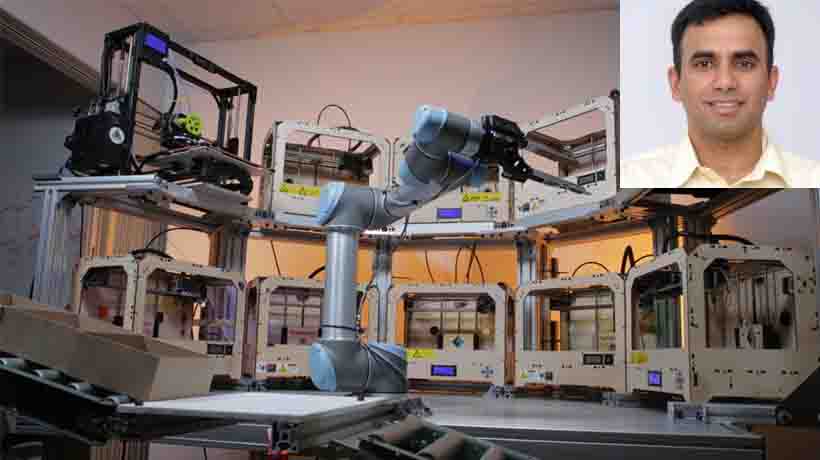Trending Now
- 830 voters names go missing in Kavundampalayam constituency
- If BJP comes to power we shall consider bringing back electoral bonds: Nirmala Sitaraman
- Monitoring at check posts between Kerala and TN intensified as bird flu gets virulent in Kerala
Technology
Are we ready to support industry 4.0?
![]() February 13, 2018
February 13, 2018
Much has been said about the Fourth Revolution, but what hasn’t been outlined enough is the gap between the skills required to embrace the revolution and the current skill set that the youngsters possess. And when the same is articulated by Chairman of Confederation of Indian Industry (CII), Mysuru chapter, Arjun Ranga, people from the industry and otherwise sit up and take notice. Very recently he was quoted saying, “The future jobs will be very different from those in the market today. The current youth skills are not enough to support the industry 4.0.” The cause of concern is that if Fourth Revolution is indeed the reality, then we have to prepare our people capabilities,and it wouldn’t be wrong to spell it in terms of skilling and employability. He stressed upon the role that India needs to play as the 6th among the 10 largest manufacturing countries that is steadily moving up for bigger share in the global market. “ Industry insiders use many terms that may be new to outsiders. So, to begin with, I need to explain what 4.0 is, before even talking about it. With technology and digitalisation, there is a shift in the manufacturing which is pushing the quality and competitiveness to higher levels. These shifts are recognised and called as Industry 4.0 or Smart Manufacturing started by Germany,” says Sayantan Das, Consultant with Altran Technologies.
Given that the automotive industry was the firt one to implement industry 4.0, we need to catch up because the automobile industry in India is one of the largest in the world, boasting of accounts over 7.1 percent of India’s GDP, contributing to almost 22 percent of manufacturing GDP. Ranga emphasised on training with new technologies like Robotics,AI and 3D printing. “ We are all scared that our manual work will be taken away by the robots,some of us in the software firms will be rendered useless. But not really, if we can adapt to the new challenge and train ourselves to multi disciplinary skills. We have already made the shift from text learning to e-learning through videos and collaborative classrooms,” says Rito Banerjee, who works for a city Startup. Aligning with the same thoughts, Venkat, working for NXP says, There is a delay in updating the academic content as per the industry requirements and latest technology. And this can be partly attributed to the lack of quality educational institutes who can bridge the gap.We also don’t foster innovative mindsets.”
If we have to embrace 4.0, we have to embrace Germany model which has a common platform with stakeholders from the industry trade unions, government and the responsibility of the stakeholders is to make the framework and define the curriculum. Rajan greatly talked about SMEs and termed them as the backbone of the country. He has credited them in adapting to low cost automation and frugal innovation and successfully showcasing with the use of low cost methods to achieve the same objectives that technology does on a large scale. Talent advisor PV Priya says, “I would say that our youngsters are equipped but not ready to apply. It is important for us to consider channelising the experienced talent into second careers, consultants.Automation will ofcourse make organisations leaner in structures but Gen X will only benefit out of this.”their structures and more matrix in their working styles. The Gen X will be in the higher salary brackets, rich in experience and high on cost liability.
























